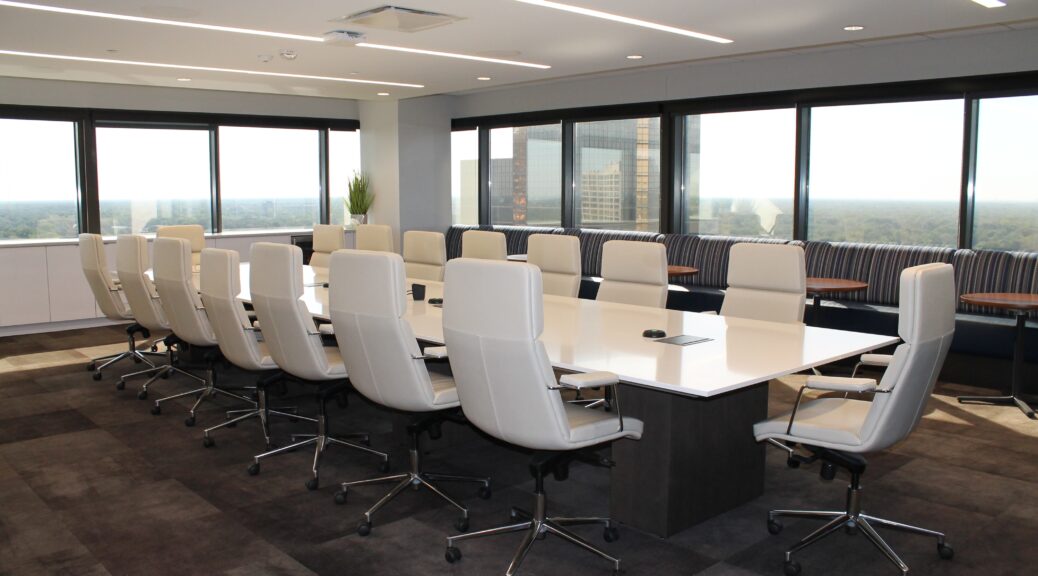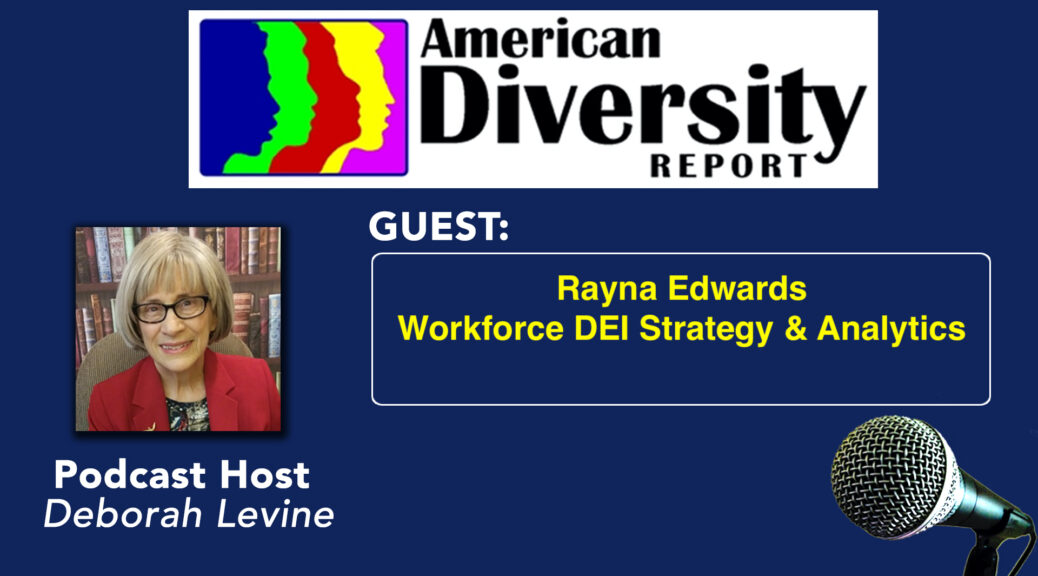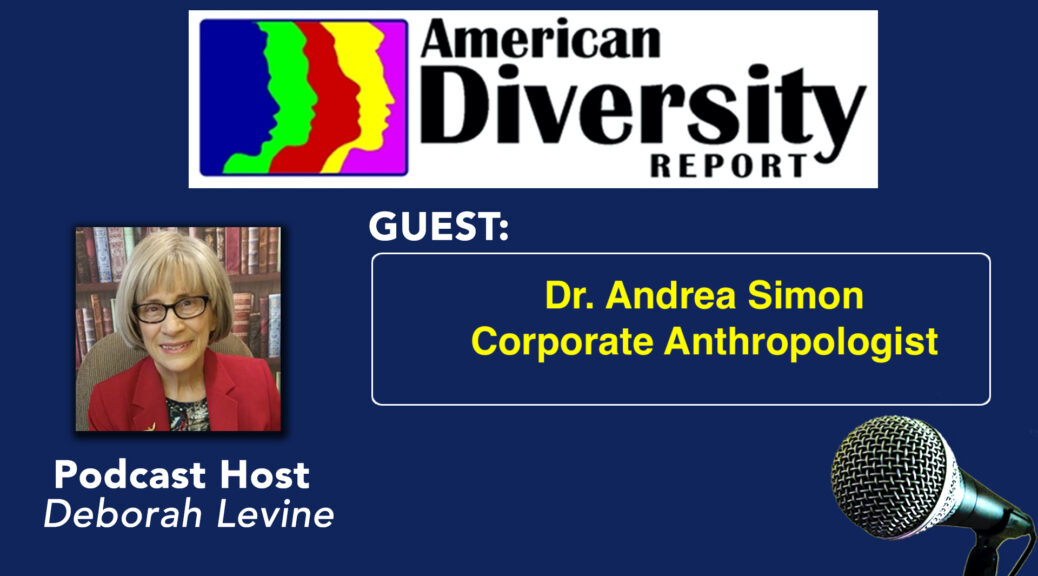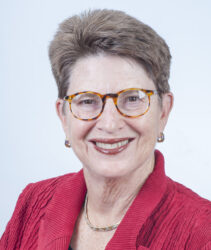Eric Fuller is President & CEO of U.S. Xpress Enterprises, Inc. He guides the company in corporate responsibility and creating a diverse, equitable, and inclusive workplace.
If you’re not familiar with U.S. Xpress, we are a trucking company, that is, a transportation logistics company with about 10,000 employees, that runs in the United States, Canada, and Mexico. From a business perspective, for the last ten years plus, there has been a lot of discussion about diversity, and in the business arena it’s very much around diversity of thought and approach. So if I have a diverse set of people, and diversity meaning backgrounds, religion, race, ethnicity and education, then I’m going to get a better product. I’m going to get better ideas. I’m going to get unique ideas. If you’re sitting around trying to solve a problem and you’ve got eight people in the room, and all eight people went to the same high school and have the same degree, and you have kind of the same general background, then you’re going to get an insular answer to your problem. So, the general idea is, the more people I have with different backgrounds and different approaches, the better answer I’m going to get. And when you hear diversity, for a long time, even prior to the George Floyd situation, that was what the business community was talking about.
A few things have happened over the last, I’d say 2-3 years, that have greatly accelerated this discussion in the business community. One is the move towards technology and this has really been driven by venture capital. As much as some of us may not like it. I’m giving Uber a lot of the credit for creating an environment in which venture capital could invest in almost any kind of industry. Prior to Uber, they invested heavily in technology and software companies and industries like that. Then all of a sudden when Uber came out, they proved that you can invest in any kind of industry and make it tech. Then a lot of capital came into other industries, disrupting them. And what that has been done in the last two or three years has made all these other companies have to suddenly become a tech company.
We now say, “Oh no, we’re not a trucking company, we’re a tech company”. I was talking to a friend of mine who’s a CEO of a big manufacturing company who says, “Oh no, we’re a tech company”. Insurance companies call themselves tech companies, and banks, too. So everyone’s calling themselves a tech company. That comes with a different set of expectation and requirements from an employee base. And the type of employees that you need to have in a tech company is drastically different than you would need from the legacy of an industrial company like ourselves. That’s a big shift and you have to understand what type of workforce that’s needed and that workforce may look very different from your previous workforce. That’s a big shift in your workforce that has occurred over the last couple years in every company, at least every large company, that’s trying to become tech.
The other piece is obviously generational. We’re seeing more and more people retire. You know baby boomers are getting to retirement age, so we’re seeing that change. Covid has accelerated the retirement; and has also accelerated the tech piece and made that even more relevant today. And then, the George Floyd situation brought all this to the forefront and got everybody talking about specifically racial equity. That really took a lot of businesses and especially business leaders down the soul searching path.
So, you ended up going through what all I have to do to manage my business because a lot of your workforce now is younger. You know, if you’re going with more of a tech workforce, they’re a lot more progressive coming out of college. They are looking for a company that has more of a social approach to their business. They want to have a company that takes a stance. One of the big things that we hear from them, I think the numbers are over 75% of students coming out of college, is that diversity and inclusion is one of their top considerations for where they want to work. It’s not just a diverse workforce. Kids coming out of college say, “I want to work at a diverse business. I want to work in a diverse or inclusive company.” So the moral and ethical is becoming a requirement for the younger workforce as well. And you know that the moral and ethical piece is personal for a lot of people.
So, as we were going through this process of figuring out where we wanted to evolve the company and how we approach diversity and inclusion, the first process feels like it’s a moral thing to do. It’s the ethical thing to do, it’s the right thing to do. But keep in mind not all workforces are wired that way, and in my industry, I have a very blue-collar workforce. Our almost 8,000 truck drivers are in their 50s or older. It’s a workforce that may not be as inclined to change their opinions or be as progressive as others. When you go to this group, and you say that this is a moral or ethical imperative, the response oftentimes that you get back is, “You don’t tell me what’s moral or ethical I know what’s moral or ethical.” So that conversation from a business perspective doesn’t necessarily work.
But what does work is the financial component. When you go back to your workforce and say, “No, this is actually a financial imperative if we want to be successful. If we want to excel, we want to grow, we want to do all these things that we’re trying to accomplish in our business, we have to do these things around diversity, inclusion, and equity. And if we don’t, then we won’t be successful.”, When you put it in that kind of context, 90% of your workforce gets behind you. We have seen a big shift when we originally started having some conversations to where we put in a financial component. People then make that big shift really quickly, because then, many will say, “Well, I don’t have the ability, necessarily, to know what’s financial. If you tell me that this is a financial imperative, I believe so.” But if I tell them it’s moral and ethical, that’s not my place. So sometimes you have to take a different path to get somewhere right in the business world. A lot of times, you do have to make it a financial journey to get people to go where you want to get them. And it’s not just lip service. To be honest, it’s very much a financial situation that we’re dealing with, so I’ll give you a little bit of context.
I have some concerns about where the business world’s going as it relates to small to midsize cities like Chattanooga which compete against places like Dallas and Atlanta and other areas that are much more diverse and have a more a diverse community. And I think that smaller and midsize communities have a real problem if they don’t embrace diversity and inclusion. I’ll demonstrate with a couple of stories as we went through trying to hire a new type of workforce and a younger workforce.
We found a lot of issues on trying to find people in Chattanooga that could meet our needs. In fact, we opened two offices, one in Atlanta in early 2019. and one in Phoenix Arizona, and those two offices are where most of our growth is happening today. And it’s happening because we’re hiring a younger diverse workforce, and that workforce doesn’t exist in Chattanooga. Some of it’s skillset-based, but some of it is where people want to live and work.
We’ve had a number of employees that we’ve tried to bring in to the Chattanooga market. Previously when we would try to bring people here, we’d bring them and their spouse to Chattanooga, put them up in a hotel on a Friday and let them stay the weekend. By Sunday, they were ready to sign because it’s a nice city. It’s pretty and there’s all sorts of outdoor activities. Then we started going after a more diverse workforce and got a lot of people who didn’t want to come.
In fact, I had a woman that we really wanted to hire from New York City. She was Korean, and we brought her here for the weekend. She called Saturday morning and said, “I’m leaving early, and I’m not interested anymore.” ,When we asked why, she said . “There’s no community for me here. There’s no one that looks like me, there are no restaurants here. The level of diversity for me doesn’t exist.” And that’s what we’re hearing more and more.
We’ve also tried to hire a few black executives from other cities. But when they come to Chattanooga, they see that it’s a very segregated community, and they don’t want to be here. They feel more comfortable in places like Dallas or Atlanta than they do in Chattanooga. That’s something that the community here has to change, or we are going to fall further and further behind from a business perspective. And businesses are going to have to embrace it, too.
For some businesses ,it’s their life cycle. They’re saying, “I’m not trying to grow, not trying to become this tech company, and just kind of happy where I am. I don’t need all this, you know new younger people. I don’t need this new approach, so, therefore, this is less important to me.” I think that’s a foolish approach for a lot of reasons, and I think that you know what will happen if they don’t get behind this and adapt. For some people, they may be able to wait another 5 or 10 years. But the workforce and the demographics are greatly changing, and they’re going to have to shift in that direction.
There is a little bit of a personal journey for a lot of people and I’ll give you just a little bit of my personal journey. For a long time, I was always very supportive of diversity & inclusion, but not quite sure that I knew what D&I was. And I also think that a number of us executives that are my age or a little bit older come from a generation where you don’t talk about race. You don’t talk about sexual orientation, and you don’t talk about things that make people uncomfortable. You just don’t do it, and I didn’t. It was probably around the timeframe of the George Floyd situation where I started making myself very vulnerable, and it was very uncomfortable. And I would have conversations with people in the community and in my business. And I had conversations with black individuals. I had conversations with gay individuals.
And I tell you what, I was so uncomfortable. I felt like I wanted to crawl out of my skin having this conversation. And I found that I was more uncomfortable than they were. But as I had that conversation, I learned so much, and I really pushed to my organization to go have uncomfortable conversations. I think you know that it’s those of us who have grown-up like this that fear it the most.
When I sit down with somebody and ask them questions and start to learn about things in their life, it’s eye-opening, but I was taught that you don’t do that. You definitely don’t ask anything like that. You stay away from it. But it’s imperative and those friends of mine, especially in the business community, that have gone in this direction, have gone down the same path. You know they’ve gotten to that point where they asked uncomfortable questions and made themselves vulnerable and it’s an eye-opening experience. So that’s just you know a little bit about my personal journey, and it’s a new journey. It’s been about a year and a half or two years, but it’s been something that’s been eye-opening for me and something that I’m really pushing internally in the company to try to get others to think that way as well.
CLICK for the transcripts of other Town Hall presenters:
Lorne Steedley: Chattanooga Chamber of Commerce
Photo by John Schaidler on Unsplash




 Rayna Edwards is a principal consultant in Mercer’s Workforce Strategy & Analytics practice, where she specializes in DEI analytics, including pay equity analyses. She will address 1) The importance of understanding how the employee experience differs by race and gender. 2) (for business/HR leaders) How to pull meaningful insights from data that is typically housed in a company’s HRIS system. 3) (for business/HR leaders) The importance of a statistically rigorous pay equity analysis in closing pay gaps.
Rayna Edwards is a principal consultant in Mercer’s Workforce Strategy & Analytics practice, where she specializes in DEI analytics, including pay equity analyses. She will address 1) The importance of understanding how the employee experience differs by race and gender. 2) (for business/HR leaders) How to pull meaningful insights from data that is typically housed in a company’s HRIS system. 3) (for business/HR leaders) The importance of a statistically rigorous pay equity analysis in closing pay gaps.
 Andrea J. Simon, Ph.D. is an international leader in corporate anthropology and CEO of Simon Associates. She is an Axiom 2017 Best Business Book author of On the Brink: A fresh lens to take your business to new heights, and author of the new book, Rethink: Smashing the Myths of Women in Business. Dr. Simon discusses corporate culture and changes needed to be diverse, equitable, and inclusive.
Andrea J. Simon, Ph.D. is an international leader in corporate anthropology and CEO of Simon Associates. She is an Axiom 2017 Best Business Book author of On the Brink: A fresh lens to take your business to new heights, and author of the new book, Rethink: Smashing the Myths of Women in Business. Dr. Simon discusses corporate culture and changes needed to be diverse, equitable, and inclusive.